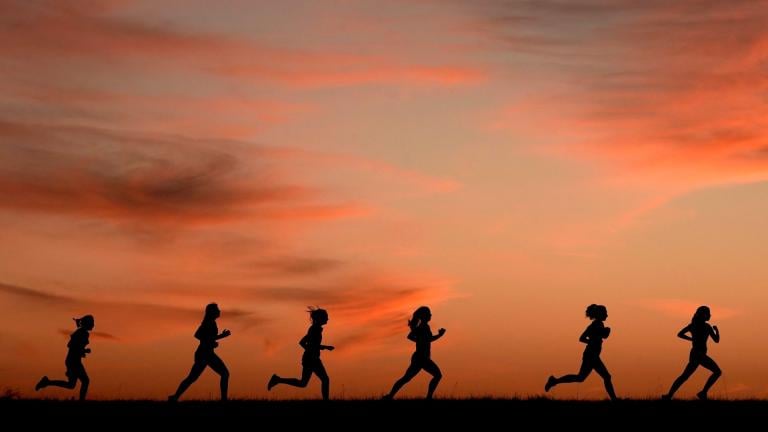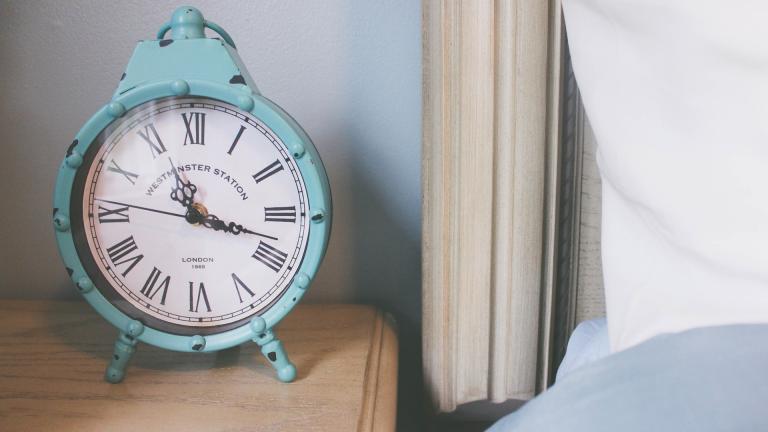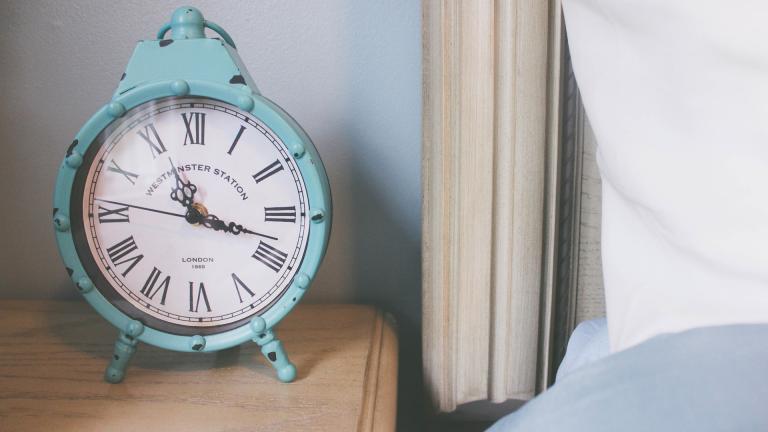 Left: Sunrise over Lake Michigan. (rlobes / Pixabay). Right: Moon over Chicago. (nathanmac87 / Flickr)
Left: Sunrise over Lake Michigan. (rlobes / Pixabay). Right: Moon over Chicago. (nathanmac87 / Flickr)
Is your natural preference for rising with the sun or staying up late linked to your risk of mortality?
A new study indicates that it might, and some are calling it a public health issue.
Researchers in Chicago and England tracked the mortality rate of nearly a half-million people over the course of 6.5 years. Ranging in age from 38 to 73, participants were asked to self-identify as a “definite morning type,” a “moderate morning type,” a “moderate evening type,” or a “definite evening type.” Researchers found that those who considered themselves “definite evening types” (i.e., night owls) had a 10-percent higher risk of dying before the “definite morning types” – or morning larks.
Overall, some 39,000 people in the study self-identified as night owls.
“The problem is when the night owl is sort of forced to live in a morning lark world, like getting up early for work on workdays,” said Kristen Knutson, associate professor of neurology at Northwestern University, which conducted the study along with the University of Surrey. “This mismatch between their internal clock and the external world and their behavior could lead to problems in the long run if this is a chronic mismatch.”
Previous research has shown night owls have “worse health, including diabetes, greater diabetes risk, obesity and high pressure,” she added. In the new study, scientists found night owls had higher rates of diabetes and psychological and neurological disorders.
The study is the first to look at night owls’ mortality risk. Even when researchers adjusted for expected health problems in that group, the higher risk persisted.
“This is a public health issue that can no longer be ignored,” said Malcolm von Schantz, a professor of chronobiology at the University of Surrey, in a press release. “We should discuss allowing evening types to start and finish work later, where practical. And we need more research about how we can help evening types cope with the higher effort of keeping their body clock in synchrony with sun time.”
Night owls aren’t doomed, however. Genetics and environment play about equal roles in determining whether someone is night owl, morning lark or somewhere in between, says Knutson.
“There are some strategies you could try to move out of the night owl zone,” such as gradually going to bed earlier, she said. She recommends night owls try bumping up their bedtimes by 20-30 minutes each night until they “get out of that night owl zone.”
Knutson doesn’t recommend a specific bedtime because that was not the focus of the study. But she says “any advancement is going to be beneficial.”
“Night owls need to recognize that there are potential health consequences about being a night owl, so they can be more vigilant about their health, maintaining a healthy lifestyle with an adequate diet, sleep and exercise,” Knutson said.
Like her colleague von Schantz, Knutson says employers should allow for flexible work schedules if possible. “Have the morning people work the early shift and allow the night owls to come in later because that would be better for the night owl’s health. But it might also be better for their productivity,” she said.
Knutson also recommends abolishing daylight savings time, which research has shown is especially hard on night owls.
“There are already reports of higher incidence of heart attacks following the switch to summer time,” said von Schantz in a press release. “And we have to remember that even a small additional risk is multiplied by more than 1.3 billion people who experience this shift every year. I think we need to seriously consider whether the suggested benefits outweigh these risks.”
The study was published April 12 in the journal Chronobiology International.
Contact Kristen Thometz: @kristenthometz | [email protected] | (773) 509-5452
Related stories:
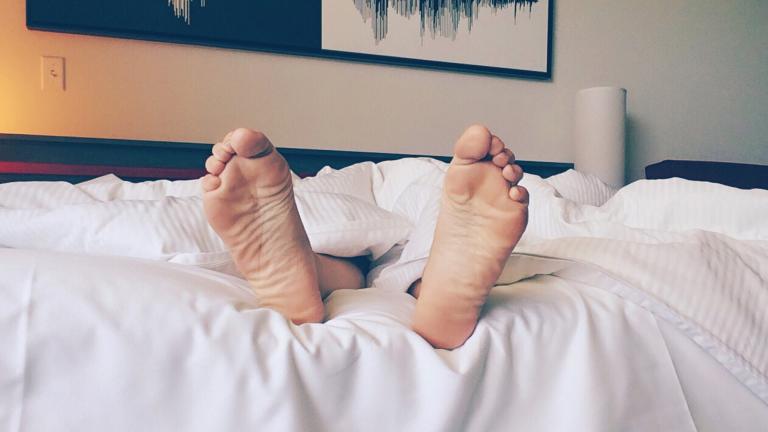 Northwestern Professor Asks, ‘What Makes Our Internal Clocks Tick?’
Northwestern Professor Asks, ‘What Makes Our Internal Clocks Tick?’
Oct. 9, 2017: Whether you’re a night owl or an early bird, your sleep is regulated by your circadian rhythm. A sleep expert helps unravel the mystery of our internal clock.
 Study Links Purpose in Life with Better Sleep in Older Adults
Study Links Purpose in Life with Better Sleep in Older Adults
July 10, 2017: Older adults who say their lives have meaning are more likely to get a good night’s sleep and less likely to suffer from sleep apnea and restless leg syndrome, according to a new study.
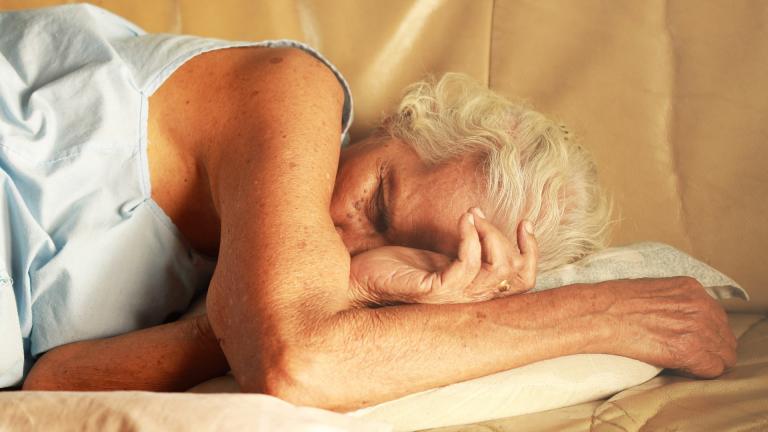 Study: Waterfall Sounds Enhance Deep Sleep, Memory in Older Adults
Study: Waterfall Sounds Enhance Deep Sleep, Memory in Older Adults
March 8, 2017: Playing pink noise – described as a waterfall-like sound – in sync with a person’s brain waves was found to enhance deep sleep and sleep-dependent memory retention in older adults, according to a new Northwestern study.


